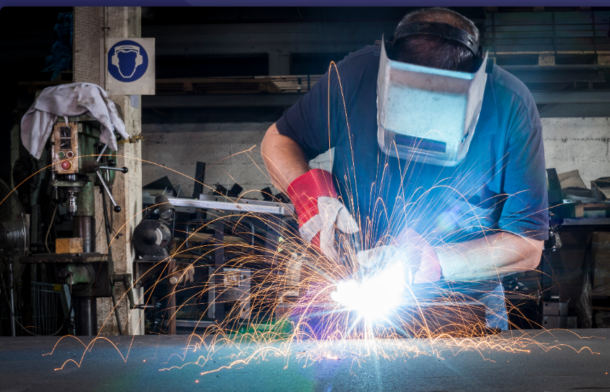In today’s fast-paced society, the convenience and adaptability that come with technology are highly prized. With the increasing prevalence of devices, individuals can easily access information, connect with others, and even manage businesses right from their smartphones. One sector that has experienced change due to this trend is manufacturing. The era of being confined to fixed tools and locations for manufacturers is a thing of the past. The introduction of manufacturing has transformed the industry by offering a level of adaptability and effectiveness.
Portable manufacturing, like mobile fabrication, involves carrying out manufacturing processes using tools and equipment, eliminating the need for a workshop or fixed setting. This technological advancement has created opportunities for manufacturers to work while on the move, allowing them to deliver their services wherever they are required.

Enhanced Adaptability:
An essential benefit of manufacturing is its adaptability. Manufacturers are no longer bound to a site. Constrained by bulky machinery. Equipped with tools and gear, they can undertake projects in areas or travel to client locations effortlessly. This heightened level of flexibility enables manufacturers to serve a customer base and extend their operations beyond boundaries.
Efficient Time Management:
One of the advantages of fabrication is its ability to save time efficiently. By eliminating the back-and-forth transportation of materials between sites, fabricators can reduce downtime and complete projects swiftly. Moreover, mobile fabrication empowers fabricators to work effectively on location, minimizing communication gaps and potential misunderstandings that might occur when working remotely.
Diverse Applications:
Mobile fabrication offers versatility in terms of applications. Traditionally certain projects necessitated large scale facilities equipped with machinery. However advancements in technology now enable fabricators to bring equipment directly to project sites regardless of their size or complexity. Whether it involves creating prototypes at construction sites or conducting repairs on equipment in areas mobile fabricators possess the tools and skills needed to handle a broad spectrum of projects.
Collaboration and Networking:
Mobile fabrication also creates opportunities for collaboration and networking. As fabricators can work in locations, they are more likely to connect with industry professionals, fostering valuable relationships for the exchange of knowledge and business expansion. This mobility allows fabricators to establish networks beyond their areas, opening doors for inspiration, innovation, and collaboration on a larger scale.
Challenges to Keep in Mind:
Even though mobile fabrication comes with benefits, there are also some hurdles that fabricators must consider. One significant factor to think about is the risks involved in moving equipment from one place to another. Fabricators should make sure they have packaging and transportation methods in place to safeguard their tools during transportation.
Another obstacle is maintaining an appearance while working on location or in settings. Fabricators must present themselves confidently and professionally regardless of their environment. This involves communication, project delivery, and consistently ensuring a tidy workspace.
The Road Ahead:
As technology progresses rapidly, the future of fabrication looks promising for advancing the industry. By incorporating artificial intelligence (AI) and automation into tools, fabricators will gain access to more efficient and precise equipment. Moreover, advancements in 3D printing technology will empower fabricators not only to carry portable tools but potentially even create new components as needed on-site.
Improving Work Efficiency:
Tailored mobile applications for fabricators can significantly enhance workflow management. These applications offer functionalities like project monitoring, task allocation, and document organization, enabling fabricators to remain structured and productive while on the move.
Having access to documents and being able to communicate in real-time with colleagues enables fabricators to work together seamlessly and meet project deadlines.
To sum up, the introduction of fabrication has brought about a level of adaptability within the industry. Fabricators are no longer confined to fixed workspaces; instead, they can bring their skills wherever they are most needed. By embracing this technology-driven change, companies can benefit from efficiency, diverse application possibilities, and collaborative prospects and ultimately maintain an edge in today’s dynamic market environment. The future holds promising opportunities as mobile fabrication advances further, providing fabricators with potential while on the move.




Join the conversation: